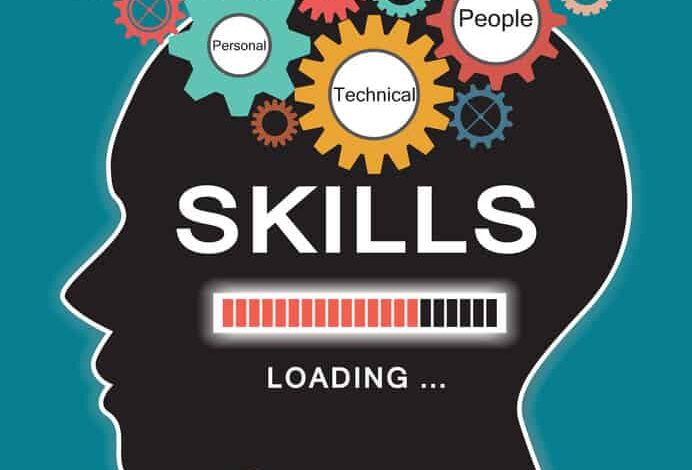Essential Skills for a successful business Analyst

The position of a business analyst is more crucial than ever in today’s dynamic business world. A business analyst examines data, recognizes patterns, and offers insightful recommendations to help decision-makers. Possessing the right skills and a strong foundation of business analyst skills is crucial to excel in this field and carving a successful business analyst career path.
The fundamental skills needed for how to become a business analyst will be covered in this blog, including analytical prowess, effective communication, domain expertise, technical proficiency, adaptability, problem-solving abilities, business process knowledge, continual development, and the significance of enrolling in relevant business analyst courses to advance your career.
Strong analytical abilities
As a business analyst, possessing strong analytical skills is vital. These business analyst skills enable them to analyze complex data and information, identify patterns, and extract valuable insights. Business analysts use various analytical tools, including data representation, data extraction, and statistical evaluation, to make recommendations for enhancing business performance and promoting informed choices.
Developing and honing analytical skills is crucial for business analysts to meet the job requirements and succeed in their roles. A business analyst with strong analytical abilities can navigate vast amounts of data, apply critical thinking to identify key insights and provide meaningful recommendations.
Effective communication skills
Effective communication skills are essential for business analysts to convey their findings and recommendations to stakeholders. Business analysts must be able to articulate complex concepts clearly and concisely. They often work with diverse teams, including executives, developers, and end-users.
Business analysts effectively communicate their insights and ensure everyone understands the proposed solutions and their benefits. Strong communication skills allow business analysts to build rapport, foster effective collaboration, and gain the trust and support of stakeholders. Effective communication is a fundamental skill for a successful business analyst, whether delivering presentations, writing reports, or facilitating meetings.
Proficiency in business domain knowledge
A deep understanding of the industry or domain is critical for business analysts. Domain knowledge helps them identify opportunities, anticipate challenges, and propose effective solutions. It allows business analysts to collaborate more effectively with stakeholders and offers valuable insights that align with business goals.
Extensive domain knowledge enables business analysts to speak the language of the business, understand industry-specific terminology, and contribute meaningfully to organizational growth.
Continuous learning and business analyst certification through research, industry publications, and engagement with industry experts is crucial for a business analyst to provide informed recommendations.
Technical competence
In the digital era, technical competence is crucial for business analysts. They must be proficient in data analysis tools, programming languages, and database management systems. By harnessing technology effectively, business analysts can extract, transform, and analyze large volumes of data to uncover valuable insights. This technical expertise enables them to bridge the gap between technology and business objectives and meet the technical job requirements.
Staying updated with technological advancements and continuously enhancing technical skills through training, online courses, or self-study is essential for a successful business analyst. Studies show that between 2020 and 2030, there will be a 7% growth in business analyst employment.
Adaptability and Flexibility
Business analysts must be adaptable and flexible to thrive in dynamic business environments. They must embrace change, whether shifting project requirements, adopting new technologies, or collaborating with diverse teams. An adaptable business analyst can navigate uncertainties, embrace challenges, and propose innovative solutions to meet evolving business needs.
Adaptability and flexibility are essential skills that enable business analysts to respond effectively to changing business landscapes. By embracing change, business analysts can stay ahead and provide valuable insights in a rapidly evolving business environment.
Problem-Solving Skills
The main responsibility of a business analyst is figuring out solutions. They identify complex business problems, analyze root causes, and propose effective solutions. Critical thinking, creativity, and resourcefulness are essential for finding innovative approaches to overcome obstacles. Business analysts must think outside the box, challenge assumptions, and deliver solutions that drive positive change.
Strong problem-solving skills enable business analysts to address challenges proactively, enhance operational efficiency, and contribute to organizational success.
By continuously honing problem-solving skills through case studies, puzzles, and real-world business scenarios, business analysts can analyze problems from multiple perspectives and develop robust solutions.
Business Process Knowledge
Understanding business processes and workflows is crucial for business analysts. By comprehending how different processes interconnect, they can identify areas of improvement and suggest strategies to streamline operations. With this information, they may close the gap between technological and commercial goals, guaranteeing that technological solutions advance operational effectiveness.
Business process knowledge allows business analysts to optimize processes, identify bottlenecks, and drive continuous improvement. By studying process diagrams, conducting process mapping exercises, and collaborating with stakeholders, business analysts understand business processes comprehensively and become valuable contributors to process optimization initiatives.
Continuous Learning and Professional Development
Business analysts must constantly learn and develop professionally to advance in their fields. Staying updated with industry trends, emerging technologies, and best practices allows analysts to deliver high-quality insights and recommendations. Pursuing business analyst certifications and attending workshops or conferences demonstrates a commitment to continuous improvement and enhances the skill set of a business analyst.
Continuous learning empowers business analysts to adapt to changing business dynamics, leverage new tools and methodologies, and deliver value to their organizations. Business analyst courses serve as a validation of their expertise and a way to showcase their commitment to professional growth.
End note
A combination of essential skills is required to excel as a business analyst and build a successful career path. Analytical abilities, effective communication, domain knowledge, technical competence, adaptability, problem-solving skills, business process knowledge, continuous learning, and business analyst certification are the building blocks of success in this field.
By developing and integrating these skills, business analysts can thrive in their careers, drive positive change, and contribute significantly to organizational success as they embark on their business analyst career path.





